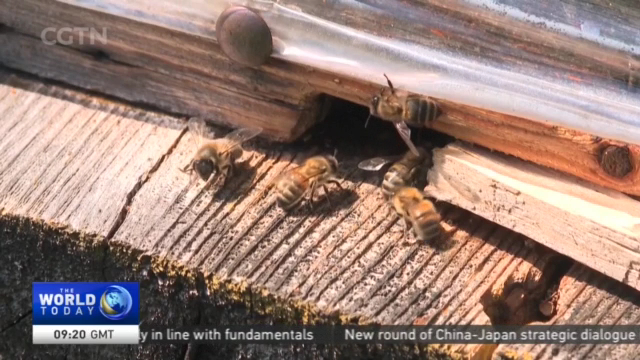
17:34, 10-Aug-2019
Mass Bee Deaths in Russia: Beekeepers call for actions to prevent food supply catastrophe
Updated
17:44, 10-Aug-2019

Russian beekeepers are warning of a crisis after mass deaths in their farms. They're calling on the government for taking measures to prevent a food supply catastrophe. From Moscow, Julia Chapman reports.
Once a hive of activity, this bee farm is no longer what it used to be.
50 of Viktor Morozov's colonies died last month, costing him thousands of dollars in lost earnings.
And his plight is far from unique.
This summer, bees have been dying en masse across thirty regions of Russia.
The agriculture watchdog has blamed uncontrolled insecticide use.
VIKTOR MOROZOV BEEKEEPER "The pesticides banned in Europe have all been dumped here in Russia. And farmers use them in their fields because it's cheap. As a result, bees are dying and people are being poisoned. Of course, somebody has to take responsibility for this. But I don't know if anyone will."
In the Tula region, beekeepers point the finger at rapeseed farmers.
Russian rapeseed crops have doubled over the past decade.
But experts say harmful chemicals are being used to increase crop yields.
JULIA CHAPMAN MOSCOW "Widespread bee deaths won't just impact the availability of honey, but of a range of food product. If bees are killed off by pesticides, they aren't able to pollinate plants, including a huge number of crops. And that could eventually result in shortages of many food items."
Honey bees have been declining globally for decades.
But in Russia, loose regulation and a lack of political will are increasing the urgency.
NATALYA ANIKEEVA BEEKEEPER "Our government and the whole human race needs to understand that we have to have bees on this earth. If there aren't any bees, that's a very scary thing. This is only the beginning - we need to save them now. We need to breed them. And in order to breed them, we need clean earth. We can't treat it with chemicals."
This group of beekeepers made an appeal to President Vladimir Putin to intervene.
Many want to see new laws introduced to regulate pesticide use more strictly.
In the meantime, it could take years to replenish colonies like this one.
But Russian beekeepers are determined to do their bit in order to avert an environmental disaster.
Julia Chapman, CGTN, Moscow.
SITEMAP
Copyright © 2018 CGTN. Beijing ICP prepared NO.16065310-3
Copyright © 2018 CGTN. Beijing ICP prepared NO.16065310-3